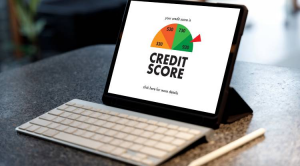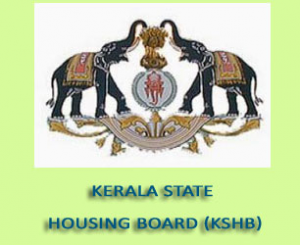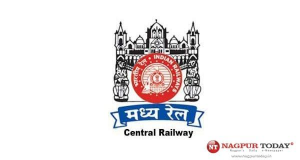When buying a property in Chandigarh, understanding stamp duty and registration charges is crucial. These charges add to the total cost of property acquisition and are mandatory for legal ownership. Whether purchasing a flat, house, or commercial space, knowing the applicable rates and how they are calculated can help you plan your budget better.
In this guide, we will explore everything you need to know about Stamp Duty in Chandigarh, including rates, exemptions, calculation methods, and ways to save on these charges.
Also Read: What is Repo Rate and Reverse Repo Rate | Housiey
What is Stamp Duty in Chandigarh?
Stamp duty is a legal tax levied by the government on property transactions. It serves as proof of property ownership and must be paid to register the sale deed. The payment of stamp duty in Chandigarh is mandatory under the Indian Stamp Act, 1899.
The stamp duty amount is calculated based on the property’s transaction value or the government-set circle rate, whichever is higher.
What Are Registration Charges in Chandigarh?
Along with stamp duty, buyers must pay a registration fee in Chandigarh to legally document the property transfer. The registration charge is a percentage of the property’s value and is separate from stamp duty.
Both stamp duty and registry charges in Chandigarh vary based on factors such as:
- Type of buyer (Male, Female, Joint Ownership)
- Type of property (Residential, Commercial, Agricultural)
- Location of property
Let’s break down these charges in detail.
Stamp Duty Rates in Chandigarh (2025)
The following table shows the applicable Stamp Duty on property in Chandigarh for different buyers:
| Buyer Category |
Stamp Duty Rate |
| Male Buyer |
6% |
| Female Buyer |
4% |
| Joint (Male + Female) |
5% |
| Joint (Female + Female) |
4% |
| Joint (Male + Male) |
6% |
Note: These rates are applicable to property transactions in Chandigarh in 2025 and are subject to change as per government revisions.
Registration Charges in Chandigarh (2025)
The registration cost in Chandigarh is a percentage of the property’s market value and is separate from stamp duty.
| Property Value |
Registration Charges |
| Up to ₹50 lakh |
1% of property value |
| Above ₹50 lakh |
₹50,000 fixed |
For example, if you buy a property worth ₹60 lakh, your registration fee in Chandigarh will be ₹50,000.
How to Calculate Stamp Duty and Registration Charges?
To estimate the total cost of property registration, you can use a Stamp Duty Calculator Chandigarh or follow this formula:
Total Cost = Stamp Duty + Registration Charges + Miscellaneous Fees
For example, if a property costs ₹80 lakh and is bought by a male buyer:
- Stamp Duty: 6% of ₹80,00,000 = ₹4,80,000
- Registration Charges: ₹50,000
- Miscellaneous Fees (Legal + Documentation): ₹10,000 (approx.)
Total Cost = ₹4,80,000 + ₹50,000 + ₹10,000 = ₹5,40,000
Using an online Stamp Duty Calculator Chandigarh can simplify this process and help in budgeting.
How to Pay Stamp Duty and Registration Charges in Chandigarh?
Modes of Payment
- E-Stamping:
- Available through designated banks and online portals.
- The most secure method for purchasing a stamp paper in Chandigarh.
- Physical Stamp Paper:
- Available at authorized vendors.
- Must be purchased before executing the sale deed.
- Franking:
- Payment is made at authorized banks.
- The bank stamps the document as proof of payment.
Step-by-Step Registration Process
- Prepare the Sale Deed: Draft the sale agreement on a non-judicial stamp paper in Chandigarh of the required value.
- Pay Stamp Duty and Registration Charges: Use online or offline payment methods.
- Visit the Sub-Registrar Office: Submit documents, get the sale deed registered, and collect the receipt.
- Biometric Verification: The buyer, seller, and witnesses must provide fingerprints and photographs.
- Collect the Registered Sale Deed: After successful processing, the registered document can be collected.
Exemptions and Concessions on Stamp Duty in Chandigarh
The Chandigarh government provides concessions on Stamp Duty on property in Chandigarh in the following cases:
- Women Buyers: Reduced stamp duty (4% vs. 6% for men).
- Gift Deed to Family Members: Lower stamp duty if transferred between blood relatives.
- Senior Citizens: May receive rebates in specific cases.
- Agricultural Land: Lower stamp duty compared to urban properties.
Ways to Save on Stamp Duty and Registry Charges in Chandigarh
- Register the property in a woman’s name to benefit from the lower 4% rate.
- Purchase property during government discount periods (if announced).
- Use a joint registration (male + female) to pay 5% instead of 6%.
- Choose e-stamping to avoid the hassle of purchasing physical stamp papers.
- Verify the circle rate before finalizing the deal to avoid overpayment.
Conclusion
Understanding Chandigarh stamp duty and registration charges is crucial for every homebuyer. These charges significantly impact the overall property cost, and knowing how to calculate and reduce them can save you a lot of money.
At Housiey, we simplify the home-buying process by providing accurate information and expert guidance. If you’re planning to buy a property in Chandigarh, make sure to budget correctly for Stamp Duty, Registration Fees, and Miscellaneous Charges.
Also, don’t forget to check out our blog on “E Swathu” to learn more about online property documentation in India.
FAQs
When buying a property in Chandigarh, understanding stamp duty and registration charges is crucial. These charges add to the total cost of property acquisition and are mandatory for legal ownership. Whether purchasing a flat, house, or commercial space, knowing the applicable rates and how they are calculated can help you plan your budget better.
In this guide, we will explore everything you need to know about Stamp Duty in Chandigarh, including rates, exemptions, calculation methods, and ways to save on these charges.
Also Read: What is Repo Rate and Reverse Repo Rate | Housiey
What is Stamp Duty in Chandigarh?
Stamp duty is a legal tax levied by the government on property transactions. It serves as proof of property ownership and must be paid to register the sale deed. The payment of stamp duty in Chandigarh is mandatory under the Indian Stamp Act, 1899.
The stamp duty amount is calculated based on the property’s transaction value or the government-set circle rate, whichever is higher.
What Are Registration Charges in Chandigarh?
Along with stamp duty, buyers must pay a registration fee in Chandigarh to legally document the property transfer. The registration charge is a percentage of the property’s value and is separate from stamp duty.
Both stamp duty and registry charges in Chandigarh vary based on factors such as:
- Type of buyer (Male, Female, Joint Ownership)
- Type of property (Residential, Commercial, Agricultural)
- Location of property
Let’s break down these charges in detail.
Stamp Duty Rates in Chandigarh (2025)
The following table shows the applicable Stamp Duty on property in Chandigarh for different buyers:
| Buyer Category |
Stamp Duty Rate |
| Male Buyer |
6% |
| Female Buyer |
4% |
| Joint (Male + Female) |
5% |
| Joint (Female + Female) |
4% |
| Joint (Male + Male) |
6% |
Note: These rates are applicable to property transactions in Chandigarh in 2025 and are subject to change as per government revisions.
Registration Charges in Chandigarh (2025)
The registration cost in Chandigarh is a percentage of the property’s market value and is separate from stamp duty.
| Property Value |
Registration Charges |
| Up to ₹50 lakh |
1% of property value |
| Above ₹50 lakh |
₹50,000 fixed |
For example, if you buy a property worth ₹60 lakh, your registration fee in Chandigarh will be ₹50,000.
How to Calculate Stamp Duty and Registration Charges?
To estimate the total cost of property registration, you can use a Stamp Duty Calculator Chandigarh or follow this formula:
Total Cost = Stamp Duty + Registration Charges + Miscellaneous Fees
For example, if a property costs ₹80 lakh and is bought by a male buyer:
- Stamp Duty: 6% of ₹80,00,000 = ₹4,80,000
- Registration Charges: ₹50,000
- Miscellaneous Fees (Legal + Documentation): ₹10,000 (approx.)
Total Cost = ₹4,80,000 + ₹50,000 + ₹10,000 = ₹5,40,000
Using an online Stamp Duty Calculator Chandigarh can simplify this process and help in budgeting.
How to Pay Stamp Duty and Registration Charges in Chandigarh?
Modes of Payment
- E-Stamping:
- Available through designated banks and online portals.
- The most secure method for purchasing a stamp paper in Chandigarh.
- Physical Stamp Paper:
- Available at authorized vendors.
- Must be purchased before executing the sale deed.
- Franking:
- Payment is made at authorized banks.
- The bank stamps the document as proof of payment.
Step-by-Step Registration Process
- Prepare the Sale Deed: Draft the sale agreement on a non-judicial stamp paper in Chandigarh of the required value.
- Pay Stamp Duty and Registration Charges: Use online or offline payment methods.
- Visit the Sub-Registrar Office: Submit documents, get the sale deed registered, and collect the receipt.
- Biometric Verification: The buyer, seller, and witnesses must provide fingerprints and photographs.
- Collect the Registered Sale Deed: After successful processing, the registered document can be collected.
Exemptions and Concessions on Stamp Duty in Chandigarh
The Chandigarh government provides concessions on Stamp Duty on property in Chandigarh in the following cases:
- Women Buyers: Reduced stamp duty (4% vs. 6% for men).
- Gift Deed to Family Members: Lower stamp duty if transferred between blood relatives.
- Senior Citizens: May receive rebates in specific cases.
- Agricultural Land: Lower stamp duty compared to urban properties.
Ways to Save on Stamp Duty and Registry Charges in Chandigarh
- Register the property in a woman’s name to benefit from the lower 4% rate.
- Purchase property during government discount periods (if announced).
- Use a joint registration (male + female) to pay 5% instead of 6%.
- Choose e-stamping to avoid the hassle of purchasing physical stamp papers.
- Verify the circle rate before finalizing the deal to avoid overpayment.
Conclusion
Understanding Chandigarh stamp duty and registration charges is crucial for every homebuyer. These charges significantly impact the overall property cost, and knowing how to calculate and reduce them can save you a lot of money.
At Housiey, we simplify the home-buying process by providing accurate information and expert guidance. If you’re planning to buy a property in Chandigarh, make sure to budget correctly for Stamp Duty, Registration Fees, and Miscellaneous Charges.
Also, don’t forget to check out our blog on “E Swathu” to learn more about online property documentation in India.
FAQs






